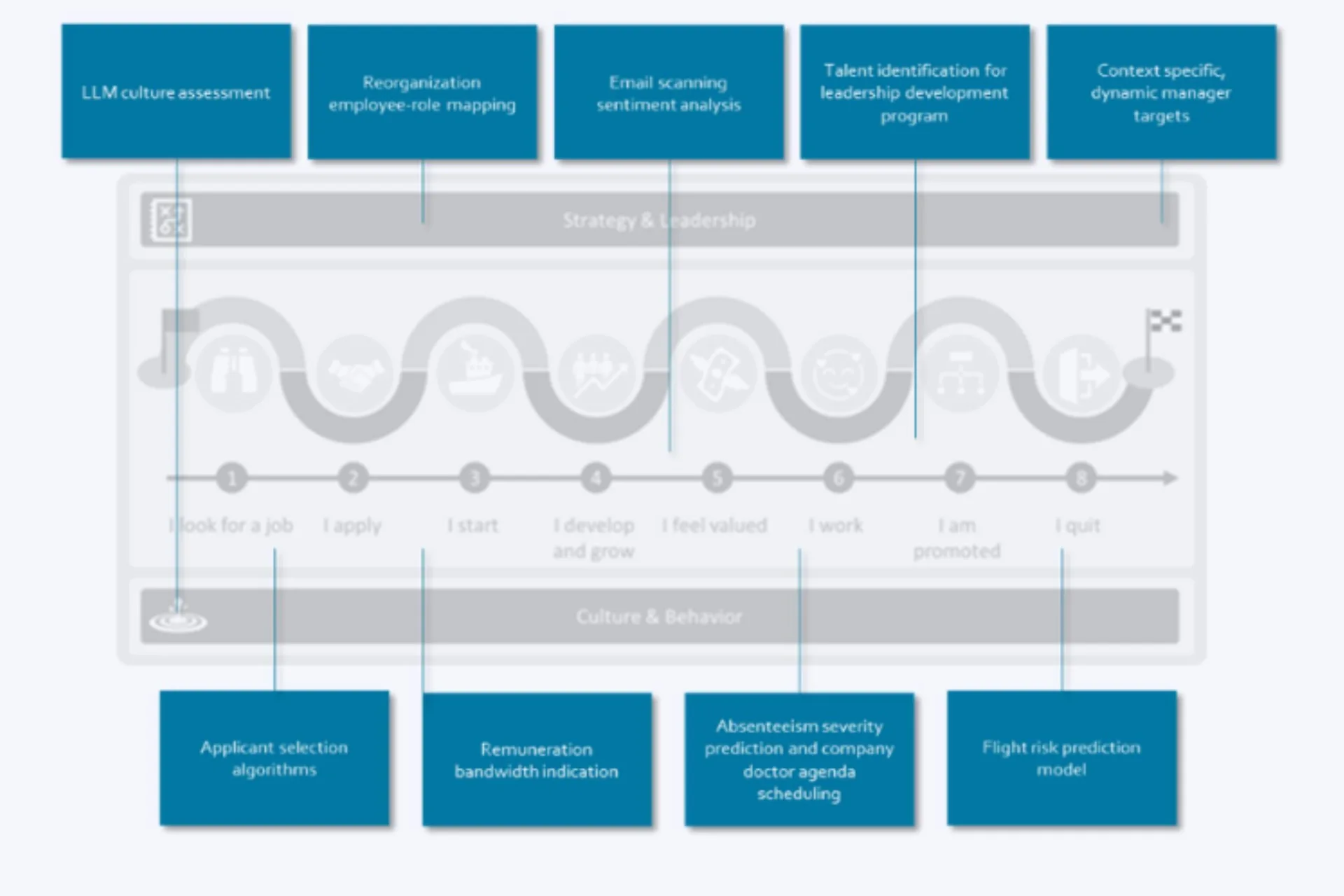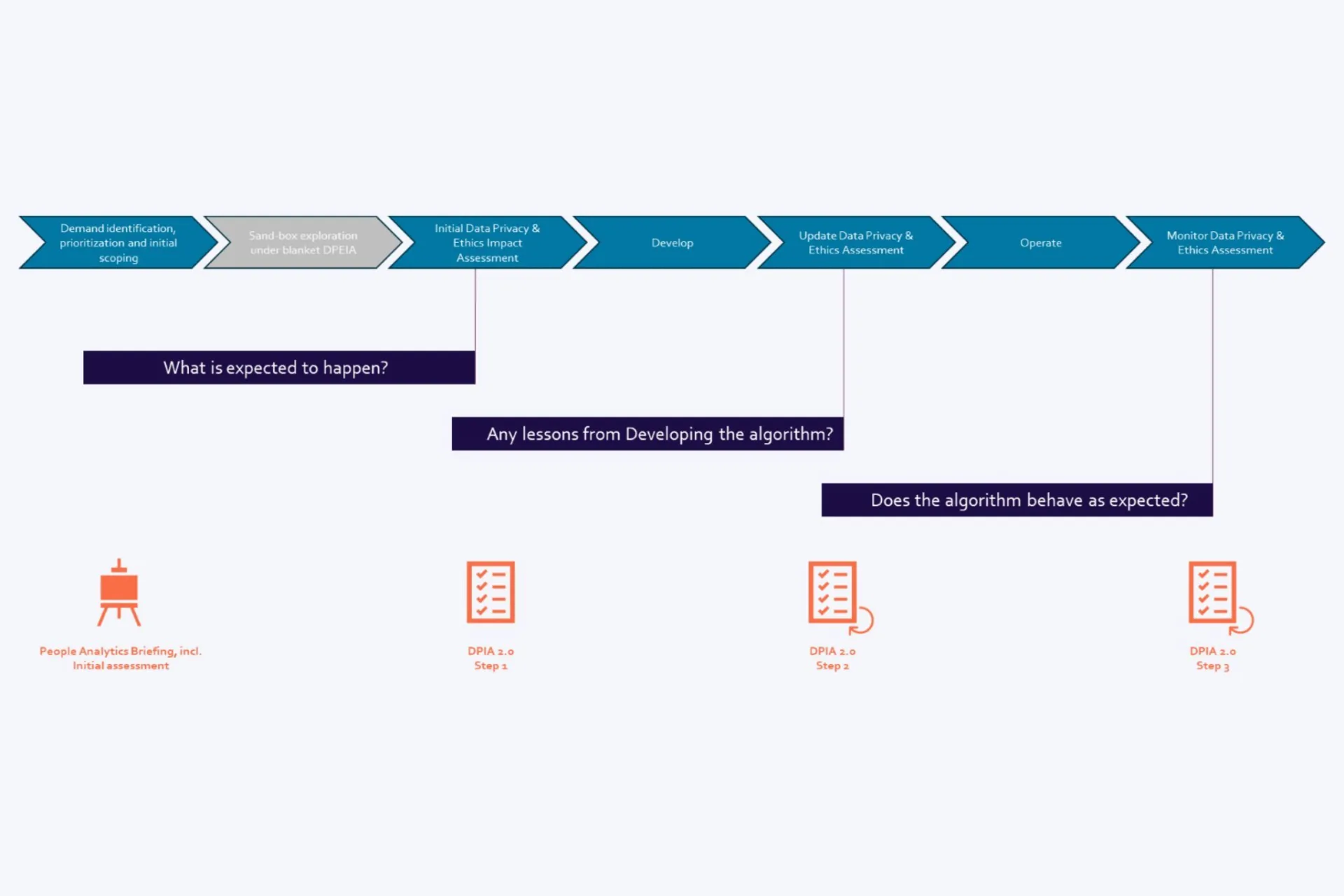AI Act & HR
“The adoption of AI in HR is now, but not without its challenges and concerns”
The advancements in technology have brought several legal regulations designed to govern their use and protect individuals' rights. In 2018 GDPR came into play. In 2023 the European AI Act was approved. The AI Act has significant implications for HR organizations. Moreover, the topic is urgent since many HR organizations are unbeknownst using AI already, or will adopt software embedded AI shortly as vendors are incorporating AI in their solutions.

Introduction to the AI Act
In an era defined by rapid technological advancement, artificial intelligence (AI) stands at the forefront of innovation, promising transformative solutions. However, as AI integration becomes increasingly pervasive, concerns surrounding its ethical, legal, and societal implications have come to the forefront. In response to these challenges, the European Union (EU) has introduced the AI Act.
The AI Act delineates a set of rules and standards intended to govern the entire AI lifecycle—from design and development to deployment and operation.
Of particular significance is the application of the AI Act to the realm of Human Resources (HR). AI is already being applied across the HR Value Chain and its adoption is only likely to increase.
However, the adoption of AI in HR is not without its challenges and concerns. Issues related to bias, fairness, privacy, and discrimination have raised questions about the ethical and legal implications of AI-driven HR systems. The AI Act addresses these concerns by imposing strict requirements on AI applications in HR, ensuring that they adhere to principles of fairness, non-discrimination, and data protection.
Why should HR organizations allocate some of their precious time to the AI Act now?
As the AI Act is a binding legislation, with AI rapidly becoming more prevalent, and with AI already being adopted, often times unbeknownst, it is vital for HR organizations to allocate time and resources to familiarize themselves with the provisions of the AI Act.
By doing so, HR professionals can proactively assess the potential impact on their existing practices and develop strategies to incorporate the required changes smoothly. By staying ahead of the curve and timely adapting, HR organizations can effectively mitigate any potential risks and avoid penalties.
Moreover, by dedicating time to understanding the AI Act, HR organizations can enhance their ability to attract and retain top talent. In today's competitive job market, candidates are increasingly concerned about the ethical use of AI in the workplace. By demonstrating a commitment to compliance with the AI Act, HR organizations can build trust and credibility with employees, positioning themselves as employers of choice.
Figure 1: examples of AI adoption in HR

How to become compliant with the AI Act
Implementing the AI Act within HR organizations requires a comprehensive approach to evaluate existing processes, identify potential areas of non-compliance, and develop strategies for necessary modifications.
The first step is to conduct a thorough audit of the HR systems and AI algorithms currently in use. This should in any cause involve the minimum requirements as laid out in the AI Act. In addition, HR organizations should consider the ethical implications of AI in relation to their company values and potentially go beyond legal compliance.
Once the audit is complete, HR organizations can focus on implementing the necessary changes to ensure compliance with the AI Act.
Furthermore, organizations must establish mechanisms for ongoing monitoring and evaluation to ensure continued compliance as technology and regulations evolve.
Lastly, organizations should develop a process for the introduction of new, externally sourced or internally developed, AI applications. Ideally this process combines legal requirements from different perspectives, e.g. GDPR, AI Act and Labor laws, as they interplay and because it will save an enormous amount of time when taking an integrated approach.

In conclusion, implementing the AI Act within HR organizations requires a multifaceted approach that goes beyond mere compliance. By conducting thorough audits and making necessary changes, HR professionals can ensure that AI technologies are used in a fair, transparent, and responsible manner.
How Highberg helps HR organizations to become compliant with Digital Laws like GDPR and AI Act
Other Highberg services that may be of interest include:
People Analytics Discovery Workshop
What is People Analytics? What are inspiring People Analytics use-cases? Where to start with building People Analytics muscle? Which pitfalls to avoid? Find out the answers to these and more questions in a vibrating workshop. Read more.
People Analytics Strategy
Increasing the chance of becoming data driven, increasing the speed of the transformation to data driven, effectively removing People Analytics blockers, creating ROI from People Analytics. That is the value of a solid People Analytics strategy. Read more.
People Analytics As A Service
Wouldn’t it be nice if you could rely on a partner to bring your organization to People Analytics maturity at lightning speed? Read more.
Related Insights

